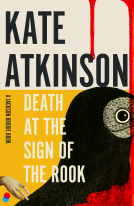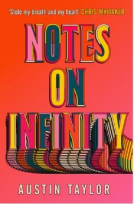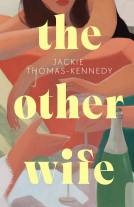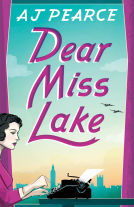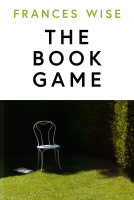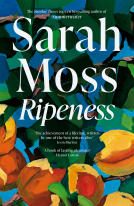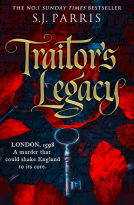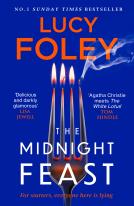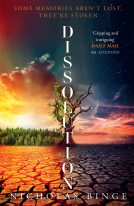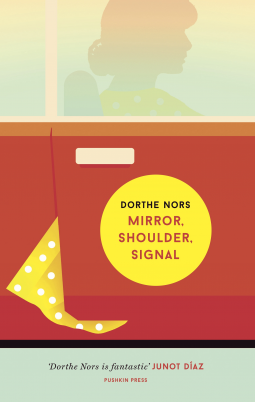
Mirror, Shoulder, Signal
by Dorthe Nors
This title was previously available on NetGalley and is now archived.
Send NetGalley books directly to your Kindle or Kindle app
1
To read on a Kindle or Kindle app, please add kindle@netgalley.com as an approved email address to receive files in your Amazon account. Click here for step-by-step instructions.
2
Also find your Kindle email address within your Amazon account, and enter it here.
Pub Date 23 Feb 2017 | Archive Date 2 Jun 2017
Description
SHORTLISTED FOR THE MAN BOOKER INTERNATIONAL PRIZE
Sonja's over forty, and she's trying to move in the right direction. She's learning to drive. She's joined a meditation group. And she's attempting to reconnect with her sister.
But Sonja would rather eat cake than meditate.
Her driving instructor won't let her change gear.
And her sister won't return her calls.
Sonja's mind keeps wandering back to the dramatic landscapes of her childhood - the singing whooper swans, the endless sky, and getting lost barefoot in the rye fields - but how can she return to a place that she no longer recognises? And how can she escape the alienating streets of Copenhagen?
Mirror, Shoulder, Signal is a poignant, sharp-witted tale of one woman's journey in search of herself when there's no one to ask for directions.
A Note From the Publisher
Dorthe Nors was born in 1970 and studied literature at the University of Aarhus. She is one of the most original voices in contemporary Danish literature. Her short stories have appeared in numerous international periodicals including The Boston Reviews and Harpers, and she is the first Danish writer ever to have a story published in the New Yorker. Nors has published four novels so far, in addition to a collection of stories Karate Chop, and a novella Minna needs rehearsal space, also published by Pushkin Press. Karate Chop won the prestigious P. O. Enquist Literary Prize in 2014. She lives in rural Jutland, Denmark.
Advance Praise
'Sonja is a thoroughly modern heroine... nothing at all like Bridget Jones. Comical and clever, with a knife-twist of uneasiness' - The Times
'This novel reads like a sort of Danish Woody Allen: existential, domestic, gently humorous' - Daily Mail
'Dorthe Nors is fantastic' - Junot Díaz
'Witty and insightful depth... Nors writes important women's fiction... she gives back agency and centrality to older women' - Financial Times
'In this short novel Nors manages to condense the essence of life' - Spectator
'Benevolent ingenuity of Nors's writing... excellent situational tragicomedy... Nors's reinvention of experimental fiction is marvellous' - Guardian
'This is a book for anyone, from Stockholm to Shanghai, who finds themselves living in a city, feeling unaccountably anxious, with "restless legs poised for flight"' - TLS
Available Editions
| EDITION | Paperback |
| ISBN | 9781782273127 |
| PRICE | £10.99 (GBP) |
Featured Reviews
 Reviewer 203820
Reviewer 203820
Sonja, a literary translator for Swedish crime novels, is over forty, so she decides that it is finally time to get her driving license. In Copenhagen's streets she is not only fighting with the driving school's car and the other cars, cyclists and pedestrians around her, but also with her instructor Jytte who just does not let her change gears and yells at her all the time. When Sonja complains with the driving school's boss Folke, she is not sure if with another instructor, she will be able to learn how to move smoothly in the traffic. However, it is not only the failure in driving that worries the translator. She struggles with her current piece of work and especially with her family relationships. Her sister as well as her parents still live in the countryside where she grew up and with whom she hardly has any contact.
Dorthe Nors novel which is nominated for the 2017 International Man Booker Prize is an interesting piece of art. First of all, I found the central topic quite innovative, I cannot recollect ever having read a novel in which learning to drive a car is the focus of the plot. Yet, this is only on the surface the central aspect, Sonja's driving lessons are much more marked by the complicated relationships and conversations by the characters. Her first instructor, Jytte, is an outstanding person. She is not only outgoing and loud in every aspect, but also not very sensitive with her students. The encounter with a very reflective and intellectual woman who, additionally, is also a bit older and full of insecurity, can only lead to conflict which the two women avoid openly. The second instructor, Folke, is much more receptive to Sonja's emotional needs than he seems at first.
On the other hand, we have the complicated communication between the sisters which is mainly avoided or unsuccessful. Kate does not want to talk to Sonja, her husband repeatedly has to deny her being at home in order not to be confronted with the sister and old conflicts which have never been solved. Dorthe Nors has found an interesting picture to illustrate their relationship: “If Sonja and Kate were apples, you’d say that they’d fallen on two different sides of the three” (pos. 852). They come from the same tree, but then they lose sight of each other.
Sonja is symbolic for the modern inhabitant of a major city. She has many people around herself, her life is full of different things she can do in town, but underlying it all is a loneliness which sometimes surfaces and makes them aware of the poor quality of the many encounters they have:
“In Copenhagen you could have something else, and her first years were a success. She learned the city’s movements, its dialog, its form. But bit by bit it stopped making sense.” (pos. 1526)
Yet, life in the countryside is also not portrayed as the perfect solution. Much more the question is raised what is important in life and should it be more than just the fulfilment of basic needs.
Even though there is a certain melancholy which marks the novel, there are also funny situations and hilarious dialogues full of absurdity. Life is not only black and white, and sometimes you struggle with it, but as soon as you have found your place and have decided on what is important for you, you can find you balance and go on.
Regarding the nomination for the International Man Booker prize, I found others nominees I have read much more demanding, e.g. Mathias Enard’s “Compass” or David Grossman’s “A Horse Walks Into a Bar”. However, for such a renowned prize, Dorthe Nors’ novel is wonderful to read on different levels.
 Linda B, Reviewer
Linda B, Reviewer
This is such an unusual novel with surprising freshness and wit, in spite of its rather unpromising central situation - that of a 40 year-old Danish woman taking driving lessons. Through a series of lessons and uncomfortable social interactions the reader gradually becomes drawn to Sonja's character and particular way of thinking. Her stream of consciousness style is quirky and funny; it makes us frustrated, amused, touched and sad, but ultimately we empathise with her, willing her to succeed. It manages to weave many different threads into its short narrative on different levels, and I feel it will remain with me for a long time.
